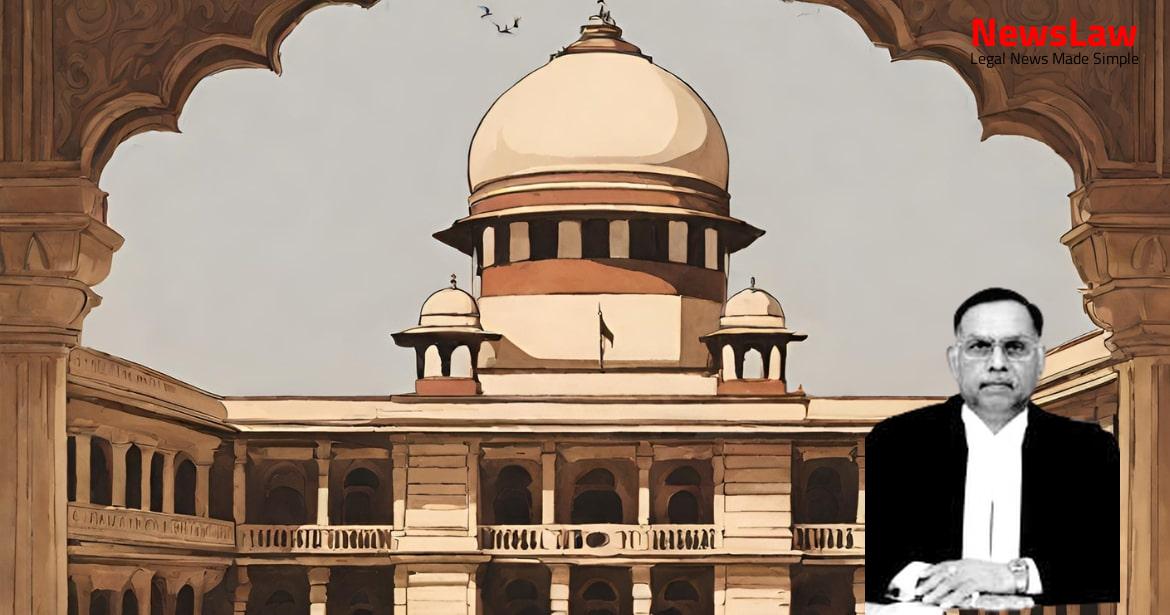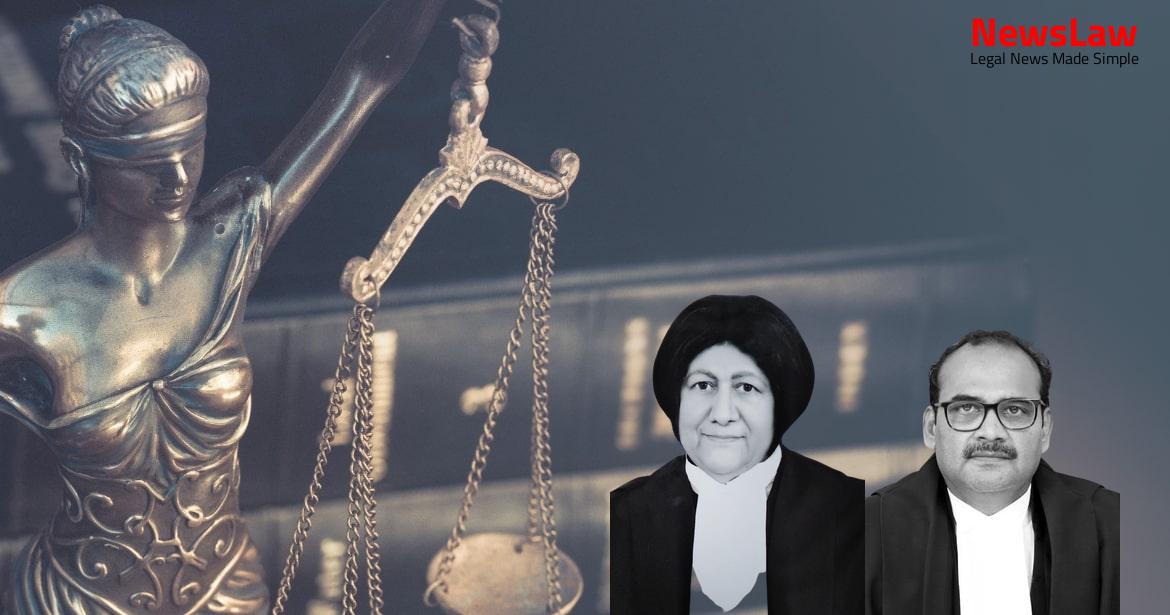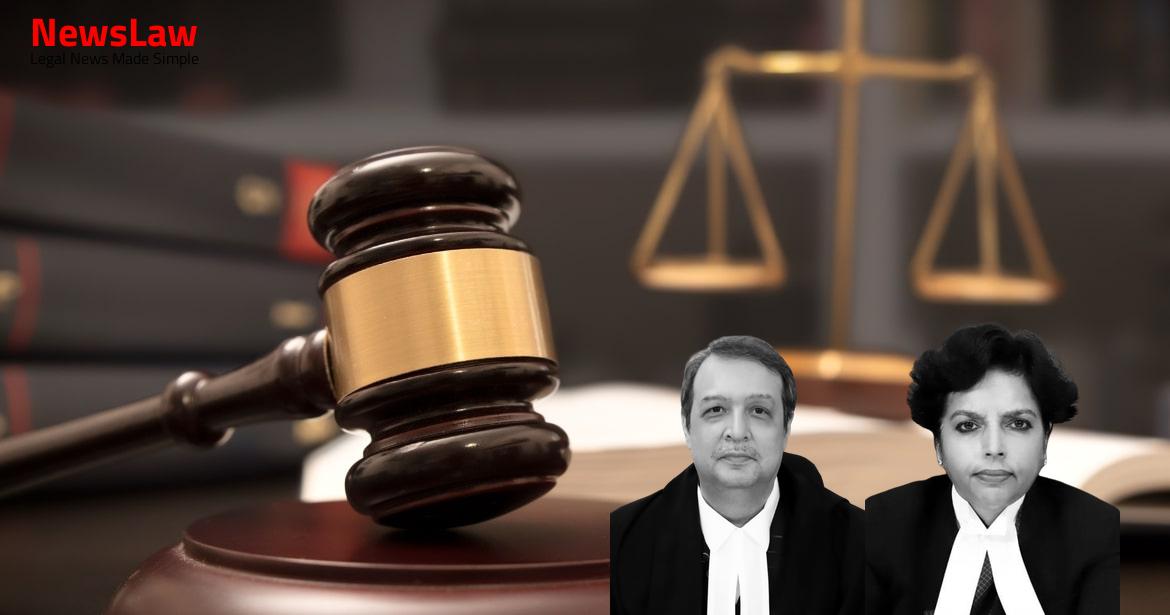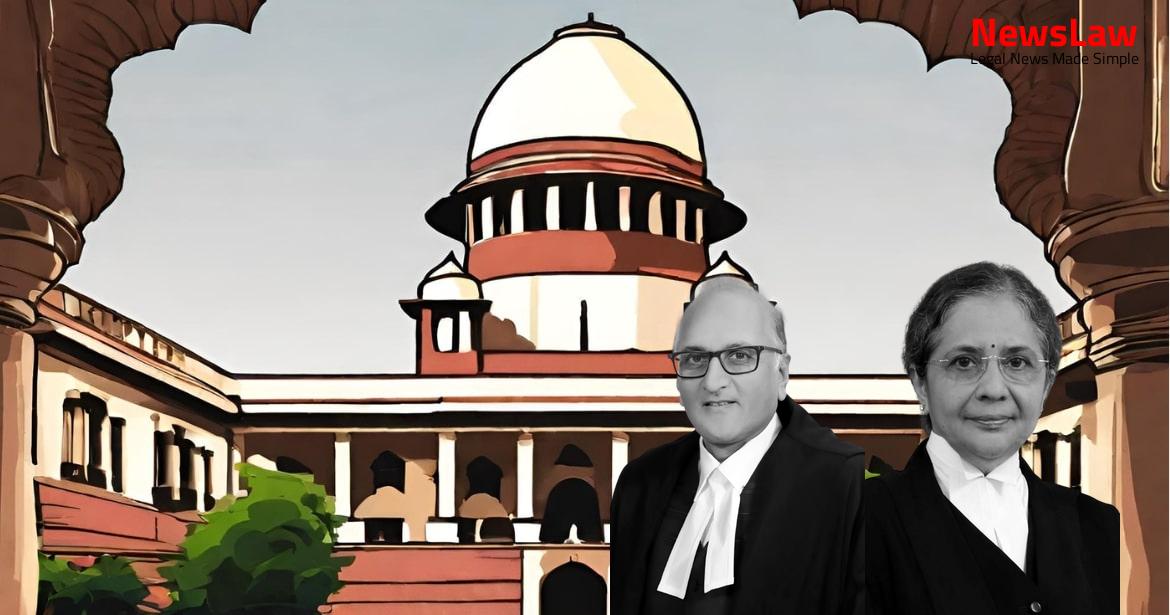Explore the detailed legal analysis conducted by the court regarding the promotion criteria within the police force hierarchy. The court’s interpretation of the statutory rules governing promotions from Sub-Inspector to Inspector sheds light on the intricate balance between experience, efficiency, and adherence to established guidelines. Discover how the court’s scrutiny of the promotion process ensures fair and transparent advancement in ranks within the police force.
Facts
- The Division Bench of the High Court upheld the promotion orders of respondent Nos. 4 to 34 as Inspectors in the Haryana Police.
- The High Court determined that the requirement of eight years’ experience for promotion to the post of Inspector is not arbitrary or discriminatory.
- After reaching their conclusion, the High Court dismissed the writ petition filed by the aggrieved parties.
- Three appeals were subsequently filed against the common judgment of the High Court, with the last appeal being filed by intervenors.
- Promotion orders dated 27.11.2008, 18.05.2009, and 13.08.2009 led to the promotion of the respondents as Inspectors of Police.
- Appointment and promotion in Haryana Police Force governed by Punjab Police Rules, 1934.
- Prior to 2001, 100% posts of Sub-Inspectors filled by promotion.
- Rule 12.3 was amended in 2001 to restrict direct appointments to Inspectors and Sub-Inspectors.
- Writ petitioners filed a petition challenging the promotion orders and seeking various reliefs, including quashing the orders and reconsideration for their own promotion.
- State contended that promotion eligibility required eight years’ service, which the petitioners did not have at the time of promotion in 2008 and 2009.
- Writ petitioners were eventually promoted in 2011 after completing eight years of service.
- State defended the validity of the Rules and argued they were not arbitrary or in violation of constitutional articles.
- First direct recruitment for Sub-Inspectors took place in 2003, where all three writ petitioners were recommended and joined as Sub-Inspectors.
- Private respondents were promoted to Sub-Inspector after the writ petitioners had joined, between June 2003 and March 2004.
Also Read: Judicial Analysis on Conversation Authenticity and Enquiry Need
Issue
- The High Court framed two issues in the writ petition for consideration.
- The first issue was whether Rule 13.14(2) prescribes the eligibility criteria for promotion to the post of Inspector.
- The second issue was whether the conditions of eight years experience in Rule 13.14(2) are arbitrary, discriminatory, and violative of Article 16 of the Constitution.
- The High Court determined that Rule 13.14(2) of the Punjab Police Rules, 1934 does indeed set the eligibility criteria for promotion to the rank of Inspector.
- The consideration of Rule 13.14 in the promotion of a Sub-Inspector to Inspector and the requirement of eight years’ approved service for direct recruits was also addressed.
Also Read: Revisiting Reservation Limits: Upholding Equality
Arguments
- Rule 13.14 is not applicable for promotion to the post of Inspector from Sub-Inspector.
- The Government of Haryana abolished the Selection Grade in all Group B, C, and D posts, including Sub-Inspector.
- Rule 13.14 is essential for promotion to the post of Inspector as it is part of the promotion scheme.
- The requirement for promotion to Inspector has always been eight years of service.
- Even after the abolition of the Selection Grade in 1987, the criteria of eight years of service was followed.
- Rule 13.14 was never challenged in the writ petition.
- The criteria for promotion to the selection grade can be considered for further promotion.
- The rationale for the eight-year service requirement for a Sub-Inspector is to handle the responsibilities of an Inspector.
- No reliance can be placed on Rules, 2017 as they were introduced after the promotion of private respondents.
- The Rules, 2017 conflict with the High Court’s interpretation of an eight-year qualifying period for promotion.
- The respondent claims not to be affected by the dispute between the writ petitioners and private respondents.
- The respondent states that his clients have already been promoted as Deputy Superintendents of Police.
- Shri P.S. Narasimha, learned senior counsel, is representing the private respondents in this case.
Also Read: Judicial Review on Conviction and Sentencing in Traffic Accident Case
Analysis
- The statutory rules governing the promotion from Sub-Inspector to Inspector in the office setting are thoroughly analyzed.
- The criteria for promotion to selection grade of a Sub-Inspector and subsequent inclusion in List ‘F’ for Inspector promotion are discussed.
- The withdrawal of the selection grade scheme in 1987 by the Haryana State Government is highlighted and its impact on promotion criteria is examined.
- The importance of experience, qualifications, and efficient service in the promotion process is emphasized.
- The statutory rules continuity in assessment criteria post-1987 despite withdrawal of selection grade is underscored.
- The significance of following rules for promotions from one rank to another, tempered by seniority, is emphasized.
- The role of various lists (A to F) in regulating promotions within the police force hierarchy is explained.
- The need for systemic evaluation for advancement in ranks and grades is reiterated.
- The interpretation of rules to align with the intended purpose of enabling advancement in ranks is discussed.
- The criteria based on experience and efficiency for promotion to the rank of Inspector is elucidated.
- The procedure for recommendations and promotions as per the statutory rules is detailed.
- Promotions from one rank to another and within the same rank shall be based on selection tempered by seniority.
- Officiating promotions should follow the principles outlined in sub-rule 13.12(1) for E list officers and the second part of that rule for F list officers.
- F list officers found unfit for the rank of inspector will be removed from the list.
- Only officers on the F list can be appointed for promotion.
- The court must give effect to the purpose and object of the Act as the legislature is presumed to have enacted a reasonable statute.
- The court must interpret the statute in a manner that makes it workable and does not render it futile.
- Courts should avoid declaring a statute unworkable and must adopt a construction that suppresses mischief and advances the remedy.
- The interpretation of statutory provisions should be such that the statute does not become a dead letter and the intention of the legislature is not defeated.
- Courts should lean against any construction that reduces a statute to futility and the provision of the statute must be construed to make it effective and operative.
- The High Court’s interpretation of the Punjab Police Rules, 1934 was endorsed.
- Chapter XIII of the Rules must be construed harmoniously.
- No error was found in the promotion of Sub-Inspectors to Inspectors as per Rules 13.1, 13.14, and 13.15.
- The High Court rightly upheld the promotion orders of the private respondents.
- No grounds were found to interfere with the judgement of the High Court in the appeals.
Decision
- The appeals are dismissed.
Case Title: SURESH KUMAR Vs. THE STATE OF HARYANA (2021 INSC 218)
Case Number: C.A. No.-001076-001076 / 2021



